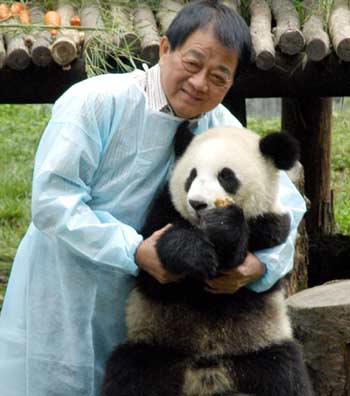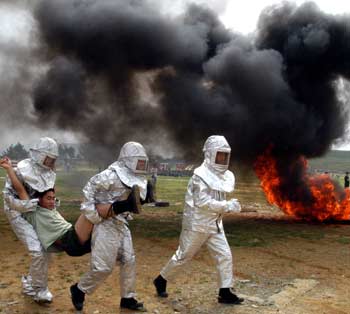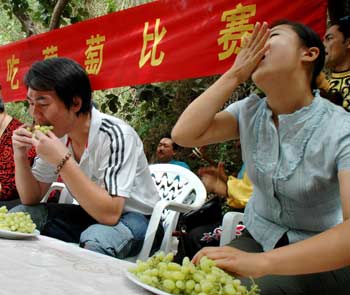|
Schools of thought divided over education
By Raymond Zhou (China Daily)
Updated: 2005-08-29 05:34
The discrepancies are not limited to higher education. Chinese parents tend
to baby-feed their toddlers Tang Dynasty poems and schools mark grades one
through 12 with an endless run of standardized tests. As a matter of fact, the
Chinese approach is epitomized by the SAT-like college entrance exam, the result
of which may, for many test-takers, determine their career paths and their
future success, or failure.
"Everybody is trying to create the perfect system. But there is no such
thing. The best way to meet the needs of children is to take the best from every
system and just practice it," said Diba Kader, a teacher at Beijing City
International School (BCIS). The brand new school in downtown Beijing opened on
Sunday, enrolling over 100 students from 22 countries.
In a pre-opening discussion, Kader and her colleagues dwelt on the pros and
cons of different teaching philosophies. They started by demystifying the
Western model. The standardized test-based model and the non-testing model are
like a pendulum swinging from side to side. Right now, the US system is swinging
back to testing since President Bush launched the "No Child Left Behind"
campaign.
"But every child is not the same," emphasized Kader.
Beijing City International School (BCIS), built with 460 million yuan
(US$56.7 million) and state-of-the-art facilities, will be a showcase of a
perfect fusion of "the best from every system," said many. "It's the whole
person, the emotional, physical and spiritual, not just the academic, that we
educate. We want good human beings. We teachers should be able to recognize the
needs of each child," said Cormel Byrne, BCIS's kindergarten teacher.
"The co-operative, interactive way of learning in Western countries comes
from their respect for children. In our society, teachers are the centre of
attention, not the students," said Tong Zhizhong, director of BCIS, who has
studied the educational systems of some 20 countries.
Tong cited the difference in teachers' public comments on students'
performance. "Teachers and parents in Western countries are generous in praise
and encouragement, so that children can develop confidence and self-respect.
Chinese teachers tend to be stingy with commendation and are always on the alert
for those who are conceited. Our parents are almost insatiable for the perfect
score. In spite of, or more accurately because of, all the put-downs at home and
in school, our children fare rather poorly when they are faced with setbacks in
the real world."
But Tong acknowledged that things are changing. "More
Chinese teachers are willing and able to communicate with students who come up
with ideas different from what they were taught."
|
 | | | Taiwan experts in Sichuan for panda selection | | |  | | | Police drill in Guizhou | | |  | | | Grape-eating contest in Xinjiang | | |
|
 |
|
 |
|
|
Today's
Top News |
|
|
|
Top China
News |
 |
|
 |
|
|
|
|
|
|